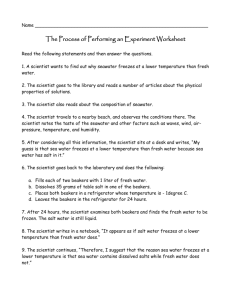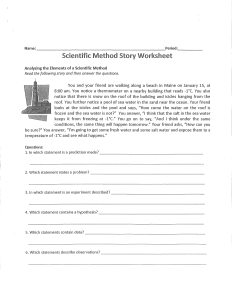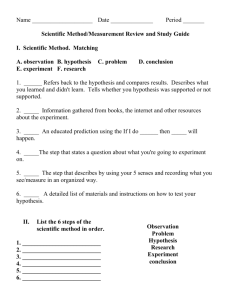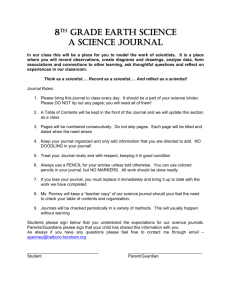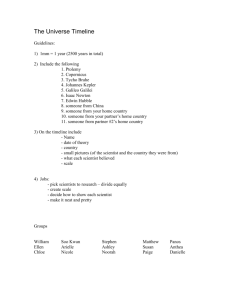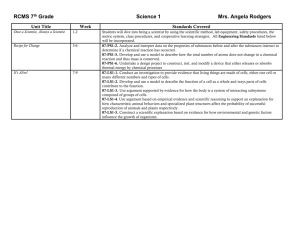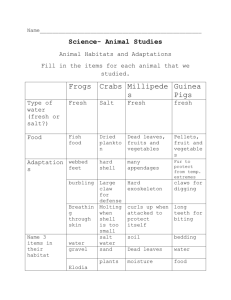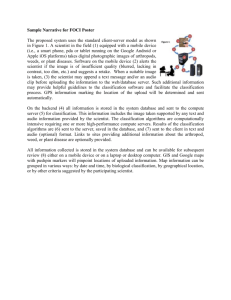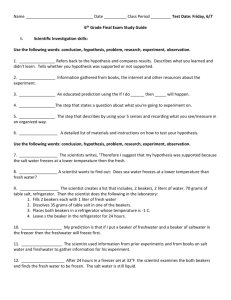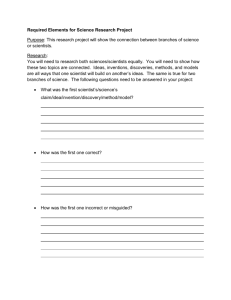Scientific Method Review Worksheet
advertisement
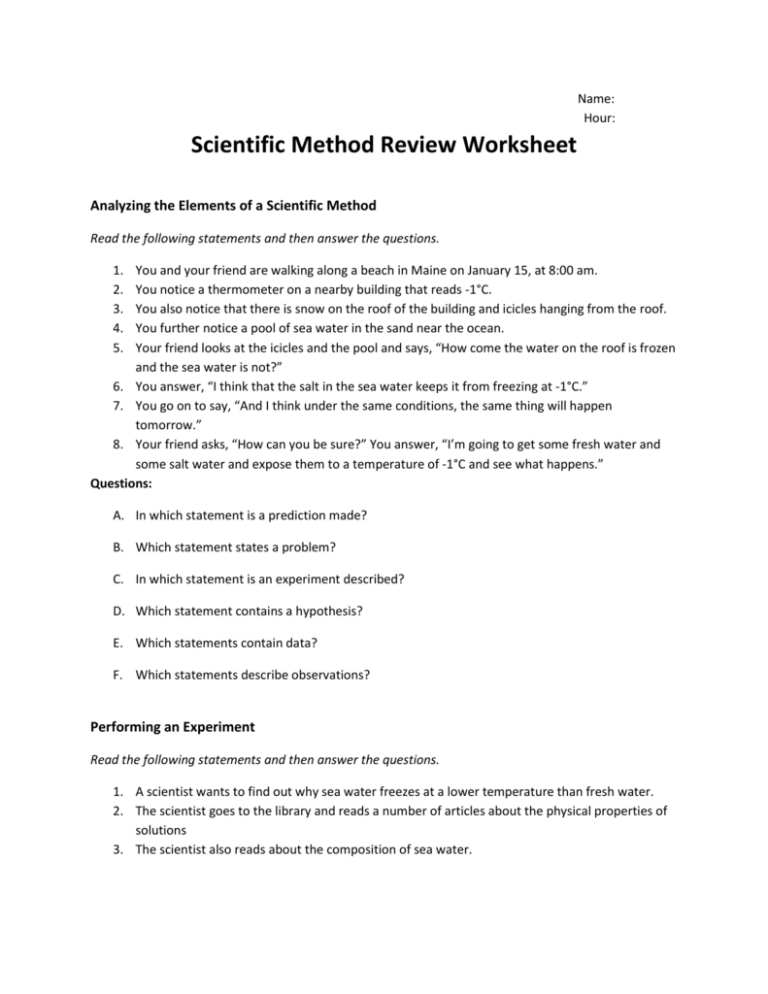
Name: Hour: Scientific Method Review Worksheet Analyzing the Elements of a Scientific Method Read the following statements and then answer the questions. 1. 2. 3. 4. 5. You and your friend are walking along a beach in Maine on January 15, at 8:00 am. You notice a thermometer on a nearby building that reads -1°C. You also notice that there is snow on the roof of the building and icicles hanging from the roof. You further notice a pool of sea water in the sand near the ocean. Your friend looks at the icicles and the pool and says, “How come the water on the roof is frozen and the sea water is not?” 6. You answer, “I think that the salt in the sea water keeps it from freezing at -1°C.” 7. You go on to say, “And I think under the same conditions, the same thing will happen tomorrow.” 8. Your friend asks, “How can you be sure?” You answer, “I’m going to get some fresh water and some salt water and expose them to a temperature of -1°C and see what happens.” Questions: A. In which statement is a prediction made? B. Which statement states a problem? C. In which statement is an experiment described? D. Which statement contains a hypothesis? E. Which statements contain data? F. Which statements describe observations? Performing an Experiment Read the following statements and then answer the questions. 1. A scientist wants to find out why sea water freezes at a lower temperature than fresh water. 2. The scientist goes to the library and reads a number of articles about the physical properties of solutions 3. The scientist also reads about the composition of sea water. 4. The scientist travels to a nearby beach and observes the conditions there. The scientist notes the taste of sea water and other factors such as waves, wind, air pressure, temperature, and humidity. 5. After considering all this information, the scientist sits at a desk and writes, “If sea water has salt in it, it will freeze at a lower temperature than fresh water.” 6. The scientist goes the laboratory and does the following: a. Fills each of two beakers with 1 liter of fresh water b. Dissolves 35 grams of table salt in one of the beakers c. Places both beakers in a freezer at a temperature of -1°C d. Leaves the beakers in a freezer for 24 hours. 7. After 24 hours, the scientist examines both beakers and fins the fresh water to be frozen. The salt water is still a liquid. 8. The scientist writes in a notebook, “It appears that salt water freezes at a lower temperature than fresh water.” 9. The scientist continues, “I suggest that the reason sea water freezes at a lower temperature is that sea water contains dissolved salts, while fresh water does not.” Questions: A. Which statement(s) contain conclusions? B. Which statement(s) contains a hypothesis? C. Which statement(s) contain observations? D. Which statement(s) describe an experiment? E. In which statement is the problem described? F. Which statement(s) contain data? G. Which is the manipulated variable in the experiment? H. What is the responding variable in the experiment?
